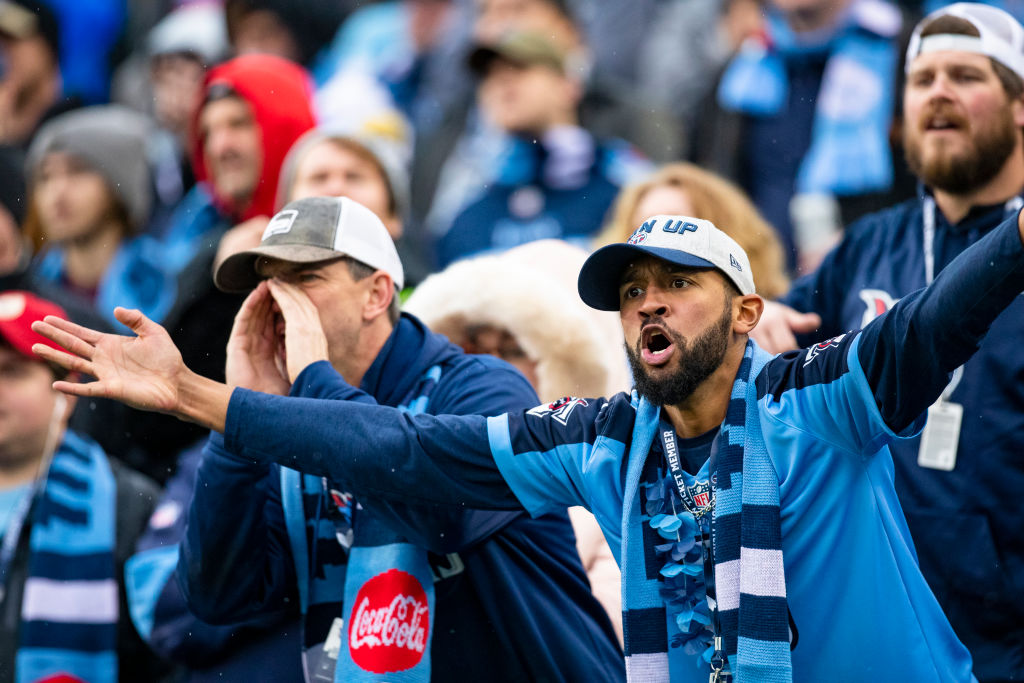NFL
NFL Fans Will Be Losing Sleep Over a Proposed ‘MNF’ Change

The National Football League has two major sets of negotiations on the horizon and two very important partners to appease.
It’s negotiating with the NFL Players Association that matters more. The collective bargaining agreement expires after the 2020 season and a new deal must be worked out for the NFL to put Patrick Mahomes, Amari Cooper, and J.J. Watt on the field in 2021.
No long-term contract would almost certainly mean either a lockout or a strike, and the league would be left with two options: Stock the Dallas Cowboys, New England Patriots, and 30 other teams with replacement players or don’t play at all.
The 1982 season was a reminder that the owners don’t make money when games get canceled. The 1987 strike ultimately taught owners that replacement players are unsatisfactory to fans and the league’s TV partners.
We’ll assume for now that that the owners will find common ground with the players and avert a work stoppage in 2021. But it’s entirely possible one new item in the TV agreements also nearing expiration will tick off another important group of people.
This NFL schedule change needs to happen
Money drives labor negotiations, but work conditions are also part of the discussion. NFL executives have been batting around a variety of changes since the last CBA was negotiated, with a move to a 17-game regular season frequently mentioned.
Players have voiced opposition to adding another game to a long, physical season. The NFL has three obvious cards to play: sweeten the share of the revenue pool, drop one of the meaningless preseason games or give each team an additional bye week.
Offering one of the three won’t lead to a deal. Offering two of the three – and you know the money will be in that package – could get it done. Giving the players all three of those cards will get it done.
The NFL considers flexing its muscle in a new way
The NFL derives enormous revenue from ticket sales, merchandise licensing, and business partnerships. Without television money, however, star attractions like Tom Brady, Aaron Rodgers, and Russell Wilson don’t make nearly as much money as they do now.
ABC/ESPN, CBS, NBC, and Fox are all in for a billion dollars a year or more. They can afford to pay because they make the money back by selling commercial time and by using the high viewer interest to promote their other programming. Now, the NFL might resort to expanding a recent innovation to make sure the best games get the greatest visibility.
The league reportedly wants to know if teams will consider flexing Monday Night Football games beginning in 2023. The NFL has already been doing that in the regular season beginning in Week 5, but only to shift Sunday afternoon games to later in the day, when there are bigger potential TV audiences.
Since there is only one Monday Night Football time slot per week, invoking the flex option would require moving a Sunday game to Monday and vice versa.
Flexing ‘MNF’ won’t sit well with fans
Flexing Monday Night Football games would create logistical challenges for teams, but they would know 12 days in advance and could make adjustments to game preparation and travel plans. If that’s the tradeoff for moving MNF from ESPN to ABC, the owners might not care.
Where the NFL might run into resistance is with those loyal San Francisco 49ers, Kansas City Chiefs, and Baltimore Ravens fans who spend big money on tickets and merchandise year after year.
Monday and Tuesday are workdays for so many people. A fan buying a ticket for a 1 p.m. game on Sunday can unwind with a beverage in the parking lot afterward, drive 100 miles, and still get home by 9 o’clock. Punching the clock for a 9-to-5 job the next day or even one that begins at 6 a.m. isn’t an issue.
But moving a 1 p.m. Sunday game to Monday night causes inconveniences. That 100-mile trip that had been planned for months suddenly means getting home in the early hours of Tuesday morning. Even if mom and dad get to work on time, how do the kids stay awake at school?
There could also be hotel reservations to change and maybe even airline tickets that must be re-booked with a surcharge.
The NFL already inconveniences some fans a few times a year to accommodate Sunday flexes. Doubling down by adding Monday to the mix might just rile the critics and perhaps even the politicians.











